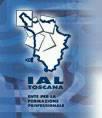
The CAMEO Project
This is an excerpt from the first part of a research paper written by dr. Matteo Perchiazzi of IAL (Tuscany) tabled at the Internet Festa in Florence on May 30th, 2002. IAL (Ente Avviamento al Lavoro) is arguably one of the best institution specialized in professional orientation and job training in Italy.
Case study: Scuola Militare Nunziatella of Naples
2. Project's Organization & Definitions

(CAMEO = Comparison and Analysis of Mentoring in EurOpe)
"Mentoring as a strategic key against social and professional exclusion"
Case study: Scuola Militare Nunziatella of Naples

The Nunziatella Mentoring Project is promoted by a group of Alumni, members of an Internet discussion group (WebEx). Aim of the service is to provide advice and professional orientation to Nunziatella's youngest Alumni, as they leave the military school after obtaining their HSC.
The service is run exclusively on the Internet, via an ad hoc forum, Nunziatella Mentors Yahoo group.
The web site is highly structured and is regulated by a strict body of Rules set out by the promoters of the project.
For privacy reasons, it is not possible here to show images of the e-Group (only registered Members can gain access thereto).
The link to its home page is :
http://it.groups.yahoo.com/group/nunziatella_mentors/
In the site's 'Mentor' database several professional careers are listed as eligible for a mentorship, not necessarily in the military. In fact a distinctive feature of the Nunziatella is that it "prepares to life and arms": the Cadets are far from being discouraged from pursuing a civilian professional career.
The following careers are specifically mentioned:
2. Project's Organization & Definitions
The organization of this Project is highly structured and formalized.
The subjects are:
The mentoring service (one on one) is reserved exclusively to the Alumni who just got their HSC (Juniors) or those already enrolled in an University, who require assistance for their orientation in life and professional career. The mentees are termed Pupils.
The Coordinators are responsible for administering the requests. They identify a suitable Mentor for each Pupil, connect the two in case of a positive match and periodically monitor the "in flight activity" of each team, measuring the overall success of the initiative and suggesting amendments of the Rules, whenever appropriate.
'Flying Team', as it is commonly referred to, is the couple Mentor-Pupil, using a fashionable 'top gun' jargon. As soon as the couples are formed, their "takeoff" is formally announced in the e-forum. Once the mission is accomplished, their landing is similarly publicized.
The Control Committee is formed of three members, who resolve by majority and final vote any controversy; they also rule on any request of exemptions to the general Rule which forbids Mentors to actually employ Pupils. They can also by their own initiative suspend Mentors, Pupils or Coordinators based on specific motivations.
The project has no other aims than the Pupils' orientation. To fully understand how much the self-imposed Rules take into account any possible implication of the Mentor-Pupil relationship (as well as the necessity to allow the "remote management" of the same by the Coordinators) it is useful to quote some excerpts from the Rules:
"The request to become a Mentor must be submitted to the Coordinators: the latter, after positively evaluating the candidate's curriculum vitae and fitness to the service, shall insert the candidate's name in the database, after obtaining the candidate's written undertaking to honour his mandate and abide by the Rules".
"All Pupils must prove their enrollment in the Alumni Association, submit their personal data by completing the participation form and formally request the Coordinators to be assigned a Mentor".
"Mentors are forbidden to directly employ Pupils (unless a specific exemption is firstly sought and obtained from the Control Committee) or to charge for the rendering of their professional services or educational activities".
"Any exemption to the general prohibition to the direct employment of a Pupil must be publicized in the WebEx-Group".
"Every month the Control Committee shall receive a report for each team's activity"
The web of contacts which are necessary for the realization of the Mentoring project coincides with the WebEx e-group network. The official Alumni Association is currently considering to formally sponsor this initiative and seek from the School's Commandant the authorization to involve in the program at least the Cadets in their last year.
Should this happen, the Alumni Association and the School would probably intervene in respect of some services, which may be rendered necessary by the target's widening, e.g., some financial assistance in meeting the increased administrative costs of the program. This aspect will need further investigation in phase 2 of this research. For the moment it is sufficient to emphasize how much the sharing of well identified common values has an impact on the motivation of both Mentors and Pupils. In this respect, it should be noted that the Nunziatella Alumni are absolutely convinced that their Mentoring should remain an orientation service rendered voluntarily and for no charge, in the name of those shared-in-common values, which they all learnt and practiced at the military school.
Currently only a brief training module on the use of certain cyber-instruments is catered for, whenever necessary: the whole mentoring relationship is exclusively carried out via Internet (telephone, chat or e-mail).
Furthermore, an ad hoc space in the cyber-forum has been dedicated to the exchange of experiences amongst Mentors, clearly aiming at constituting a community of practice.
It should be noted how this is becoming a strong theme in the latest generation of remote learning, whereas learning on the web is seen mainly as an exchange of knowledge and qualifications through a community of practice.
Learning 'on the web', therefore, not only 'via the web'. I.e., the web as a place where to learn, not only as a communication medium.
The coordinating committee intends to set up as soon as possible some learning modules aimed at providing specific training in mentoring techniques. This subject will be more thoroughly examined in phase 2 of this research.
5. Mentor - Pupil relationship
The Mentoring service is voluntary and gratuitous. It is essentially based on a very strong bond, i.e., the values, esprit de corps and tradition of the military school, in which all the Alumni were forged as adolescents.
In keeping with the mot 'prepare to life and arms', the Alumni's network appears as the natural extension of a community of values which instills in every Cadet a very strong sense of civil and social commitment.
Many obstacles are easily overcome in the name of this sense of belonging, including those involved in any first contact. Since, as they say "we speak the same language", "we lived the same experience", "we belong to the same world", "even if from different generations, we all have the code necessary in order to exchange experiences amongst ourselves".
The Mentoring service thus becomes the medium for a genuine inter-generational exchange.
The Mentoring relationships are constantly monitored by the Coordinators by way of periodical reports (pupils' and mentors') on the following topics:
The Mentor-Pupil relationship is publicized and highly formalized within the e-group, in order to render it absolutely transparent (private contents aside, of course), to make its achievements known and - finally - to allow the Coordinators or the Controllers to publicly intervene with the necessary correctives, should the relationship start to deteriorate for any reason. Even this public intervention is not meant as a reproach, but as an opportunity for the whole community of Mentors and Pupils to learn from mistakes.
Thanks to Internet, the teams can be formed with individuals who reside in different parts of the world. The principal Coordinator is presently managing the project on line from Sydney, Australia, with the assistance of two "co-moderators", based one in London and Milan respectively. Whenever possible, the rule is that Mentor and Pupil should reside in different cities.
The relationship between Mentors, Coordinators, Control Committee and Pupils is formed and takes place in an ad hoc web site, the Nunziatella Mentors e-group.
There are some public spaces (forum), some reserved to the Mentors and some which can only be accessed by the Coordinators.
All subscribers (Members) are visualized and identified through their name, their nickname and an animation which consents to verify if the Member is currently on line and what is his role in the project.
Within the site there are several sections: